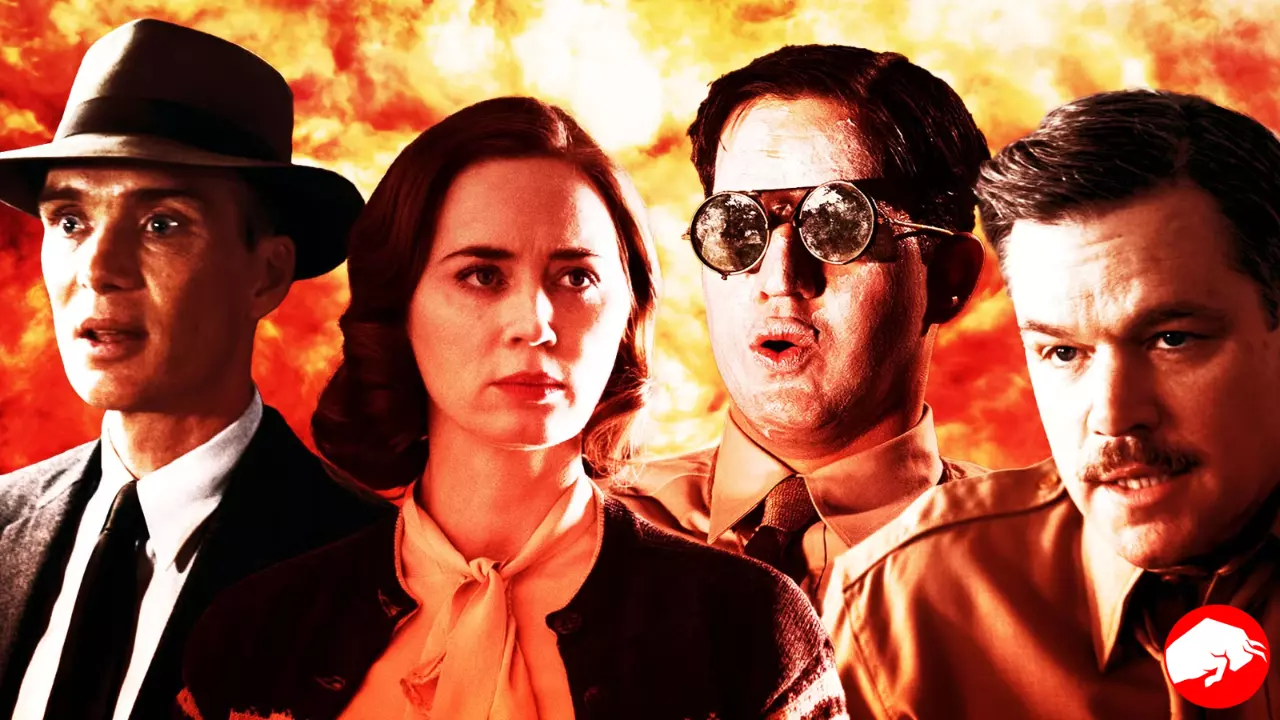Christopher Nolan, a highly respected and successful filmmaker, has once again shown his mastery of storytelling through the film medium with his historical epic drama, Oppenheimer. The film presents a vivid and comprehensive look into the life and times of one of history’s most important figures, J. Robert Oppenheimer. This physicist played a crucial role in the development of one of the most destructive weapons humanity has ever seen, the atomic bomb, earning him the title “father of the atomic bomb.”
The movie offers more than just a biographical account of Oppenheimer’s life; it also features a wealth of beautiful and stunning images, thanks to the exquisite cinematography. Nolan’s choice of lighting, angles, and lenses, as well as his meticulous attention to the period’s authenticity, are visual treats that add layers to the storytelling. The narrative weaves its way through complex themes and moments in history, making the experience not only enjoyable but thought-provoking as well.
However, what has really captivated viewers worldwide is the ensemble cast of characters that Nolan has assembled. Each character is rich and diverse, drawn with care and depth that make them more than mere supports to the main plot. They come to life on screen, creating an intricate tapestry of human relationships and events that make the film as much about them as it is about Oppenheimer.
A multitude of high-caliber performances have garnered widespread acclaim, both from critics and the public. These performances have also spurred Oscar buzz, hinting at potential nominations and wins. With so many standout characters, it becomes a task in itself to dissect each one’s role and contribution to the film. We will attempt this daunting task, providing our perspective on each character’s significance, the actor’s portrayal, and the impact they’ve had on the film’s success.
In our quest to understand Oppenheimer in all its brilliance, we will analyze and rank the ten best characters from this film. These rankings will not only reflect the characters’ contribution to the storyline but also consider the quality of the performances behind them. This exploration will help us appreciate the artistry and craft that went into creating this cinematic masterpiece. Expect a fascinating journey as we dive into the characters’ layers, their relations, motivations, and the ways they shape and are shaped by the events in the film.
So, buckle up as we embark on this thrilling cinematic exploration.
10. Roger Robb – The Interrogator
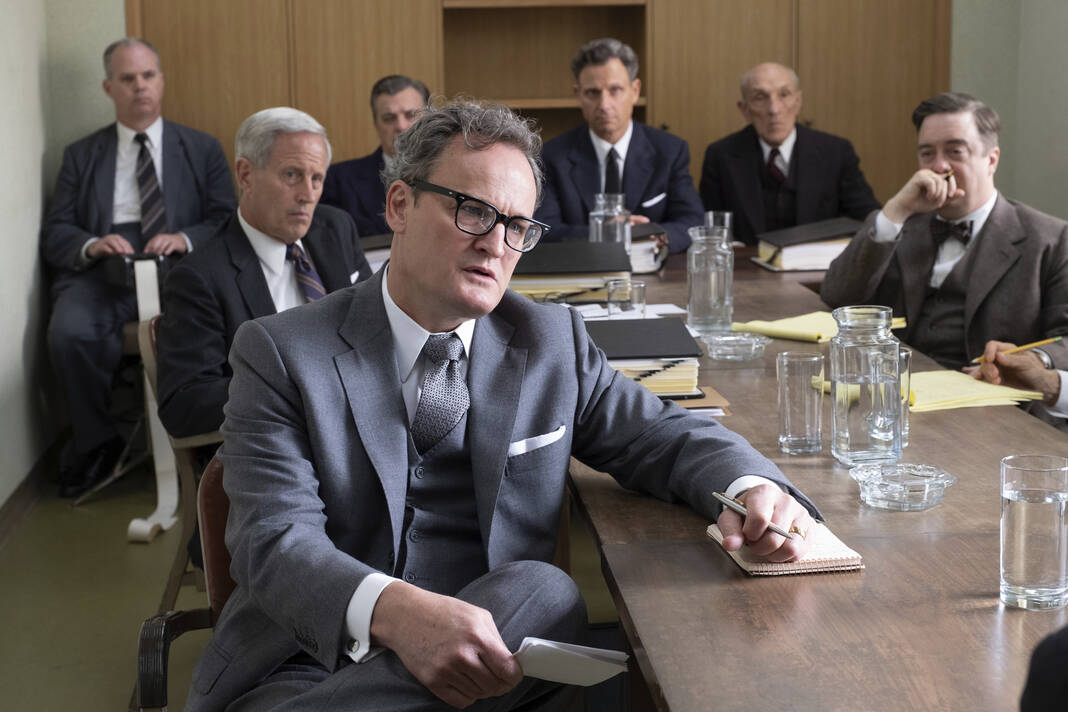
Jason Clarke, a versatile and acclaimed actor, delivers a powerhouse performance as Roger Robb in Christopher Nolan’s Oppenheimer. Roger Robb is not just another face in the crowd, not just one more suit behind a desk. No, he is far more complex and intricate than that. As the special council for the Atomic Energy Commission (AEC), Robb occupies a position of immense power and responsibility, tasked with ensuring the integrity and safety of one of humanity’s most potent and dangerous creations: the atomic bomb.
Clarke’s portrayal of Robb is filled with a kind of determination and intensity that leaps off the screen. His relentless questioning, sharp mind, and unwavering sense of duty make for a performance that provides a clear window into the pressure-cooker environment that J. Robert Oppenheimer found himself in. Imagine being surrounded by people, each one ready and eager to question your every move, your every decision. Clarke’s Robb is the embodiment of this intense scrutiny, a character that represents the constant, relentless pressure that Oppenheimer was under.
However, there is more to Clarke’s character than just the tension he generates. Robb is not merely an antagonist or a simple obstacle in Oppenheimer’s path. His relentless pursuit and dogged questioning, while certainly creating an atmosphere of stress and uncertainty, also serve a crucial narrative purpose. They force Oppenheimer to confront his own past, to dig deep into his memories. These are not just any memories, but those that are both cherished and painful.
In Robb’s presence, Oppenheimer finds himself wrestling with ghosts from his past, memories that he would rather forget but cannot escape from. These moments of self-reflection bring to the surface aspects of Oppenheimer’s character that may not have been revealed otherwise. They make for poignant and emotionally charged scenes, as we, the audience, watch a man forced to reconcile with his own actions and decisions.
What’s truly remarkable about Clarke’s portrayal is how he brings Robb to life as more than just a foil for Oppenheimer. Through Clarke’s nuanced and layered performance, Robb becomes a character who has his own motivations and beliefs, a character who is firm in his pursuit of the truth, no matter how uncomfortable it might be. He challenges Oppenheimer not just out of duty, but out of a deep-seated conviction about the importance of accountability and truth in the face of such powerful and dangerous technology.
9. Jean Tatlock – The Forbidden Flame

The highly talented and increasingly popular actress, Florence Pugh, takes on the role of Jean Tatlock in Christopher Nolan’s Oppenheimer. Pugh, known for her riveting performances, once again impresses audiences worldwide with her ability to fully inhabit a character. Jean Tatlock, a figure from Oppenheimer’s complex and layered past, is brought to life in a way that adds significant depth to the narrative and reveals aspects of Oppenheimer’s character that are crucial to our understanding of the man behind the bomb.
Tatlock and Oppenheimer’s relationship is a whirlwind of emotion, revealing a side of the physicist that might otherwise have remained hidden behind the walls of scientific theories and political machinations. Their relationship is passionate and intense, hinting at a version of Oppenheimer that is softer, more vulnerable, and perhaps more human than the public figure most are familiar with. Pugh, with her subtle yet powerful acting, helps to peel back these layers, providing audiences with a more nuanced view of Oppenheimer’s character.
In Pugh’s hands, Tatlock isn’t just a romantic interest or a tool for character development. She is a fully realized character with her own dreams, hopes, and beliefs. Pugh infuses Tatlock with a sense of determination and commitment to her beliefs that is nothing short of inspiring. Tatlock’s unwavering dedication to her principles, even in the face of adversity, paints a picture of a strong and resilient woman. This characteristic also adds a layer of tension to her relationship with Oppenheimer, further complicating their already tumultuous dynamic.
However, this very dedication, the same strength that defines her character, eventually leads Tatlock to a tragic end. Despite the heartbreak that this outcome brings, it adds to the richness of Tatlock’s character and the overall narrative. Her tragic end serves as a stark reminder of the harsh realities of their world and the cost of standing by one’s beliefs. This event also profoundly impacts Oppenheimer, further shaping his character and influencing his decisions in the narrative.
Pugh’s portrayal of Tatlock is a compelling mix of passion, strength, and vulnerability. She brings to the screen a character who is not just part of Oppenheimer’s past but an integral part of his journey, his evolution, and his story. Tatlock, as portrayed by Pugh, is not merely a ghost from Oppenheimer’s past; she is a beacon of strength and commitment, a source of love and pain, and ultimately a pivotal character in the narrative.
8. Isidor Rabi – The Moral Compass
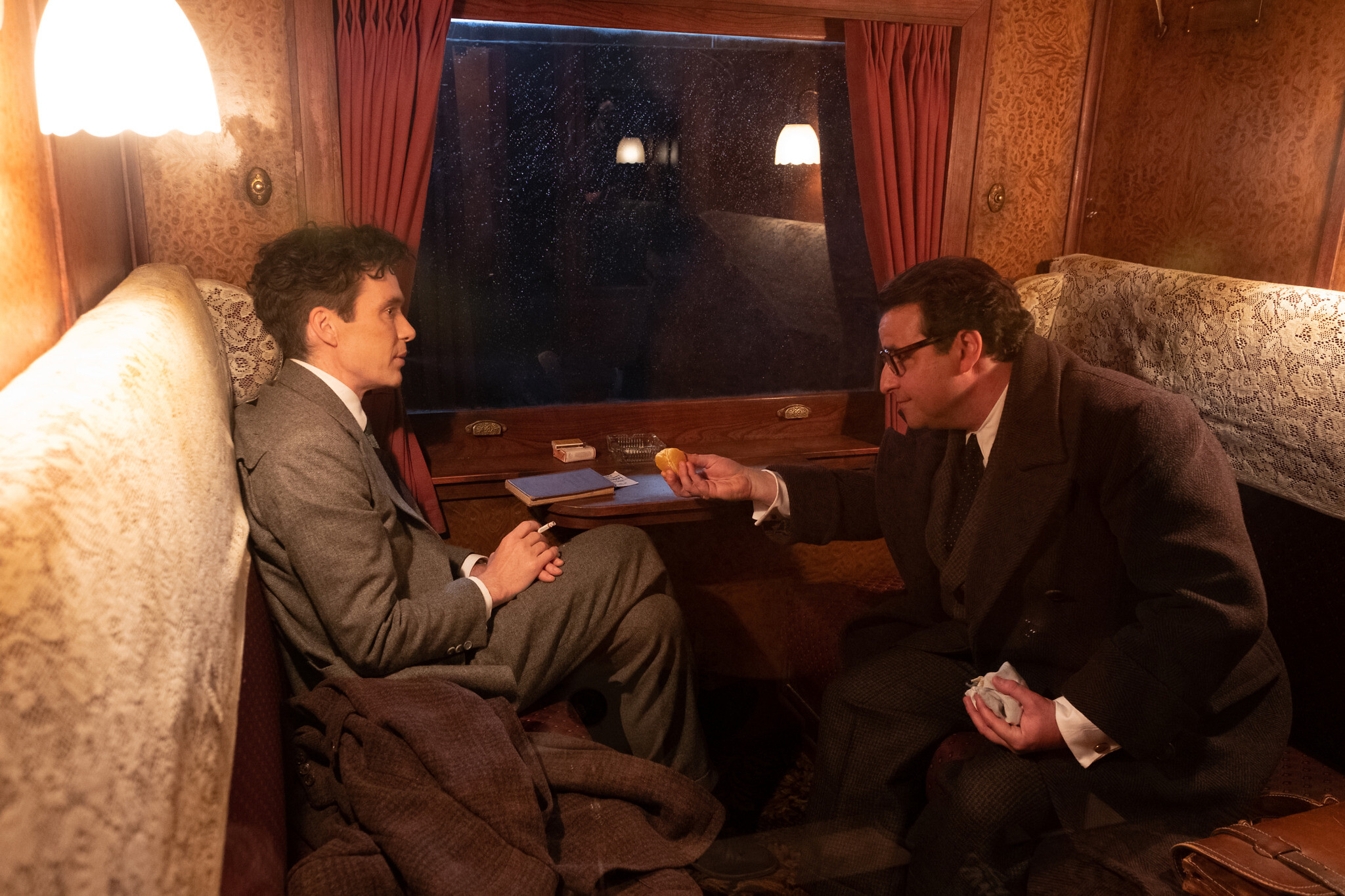
In Christopher Nolan’s epic drama, Oppenheimer, David Krumholtz steps into the shoes of Isidor Rabi, a Nobel laureate physicist who was a key figure in the development of the atomic bomb. What stands out about Krumholtz’s performance, however, is the levity he brings to a film that grapples with serious and heavy subject matter. In a story often cloaked in the grimness of atomic physics and the moral complexities it brings, Krumholtz’s Rabi provides moments of lightness and humor, reminding audiences of the human element at the heart of it all.
But it’s not just the humor that Krumholtz brings to the table. Through his portrayal, he creates a character with a deep connection to Oppenheimer, one that stretches beyond their shared occupation. Rabi and Oppenheimer share a common heritage and similar moral compass, bonds that strengthen their relationship and provide a grounding force amidst the turbulence of their world. It’s a relationship that brings a layer of depth to both characters and adds to the richness of the film’s narrative.
Krumholtz brilliantly manifests this connection not through grand gestures or dramatic moments, but through simple, everyday actions. The acts of sharing food, something so ordinary yet profound, serve as a testament to Rabi’s loyalty and inherent goodness. These shared meals, captured in scenes filled with warmth and camaraderie, serve as a tangible symbol of the bond between Rabi and Oppenheimer. They create moments of respite within the film’s intense narrative, offering audiences a glimpse into the human side of these larger-than-life characters.
Through Krumholtz’s skilled portrayal, Rabi becomes much more than a secondary character. He stands as a beacon of humanity within a narrative that often teeters on the brink of despair. His friendship with Oppenheimer, his humor, and his loyalty all contribute to grounding the film, offering a counterpoint to the heavy themes of science and war that dominate the storyline.
Krumholtz’s performance as Rabi is a shining example of how a skilled actor can bring nuance and depth to a character, transforming him from a historical figure into a relatable and compelling presence on screen. His humor and goodness, along with his deep connection to Oppenheimer, not only enrich the film’s narrative but also provide a poignant reminder of the human stories at the heart of historical events.
7. David Hill – The Unsung Hero
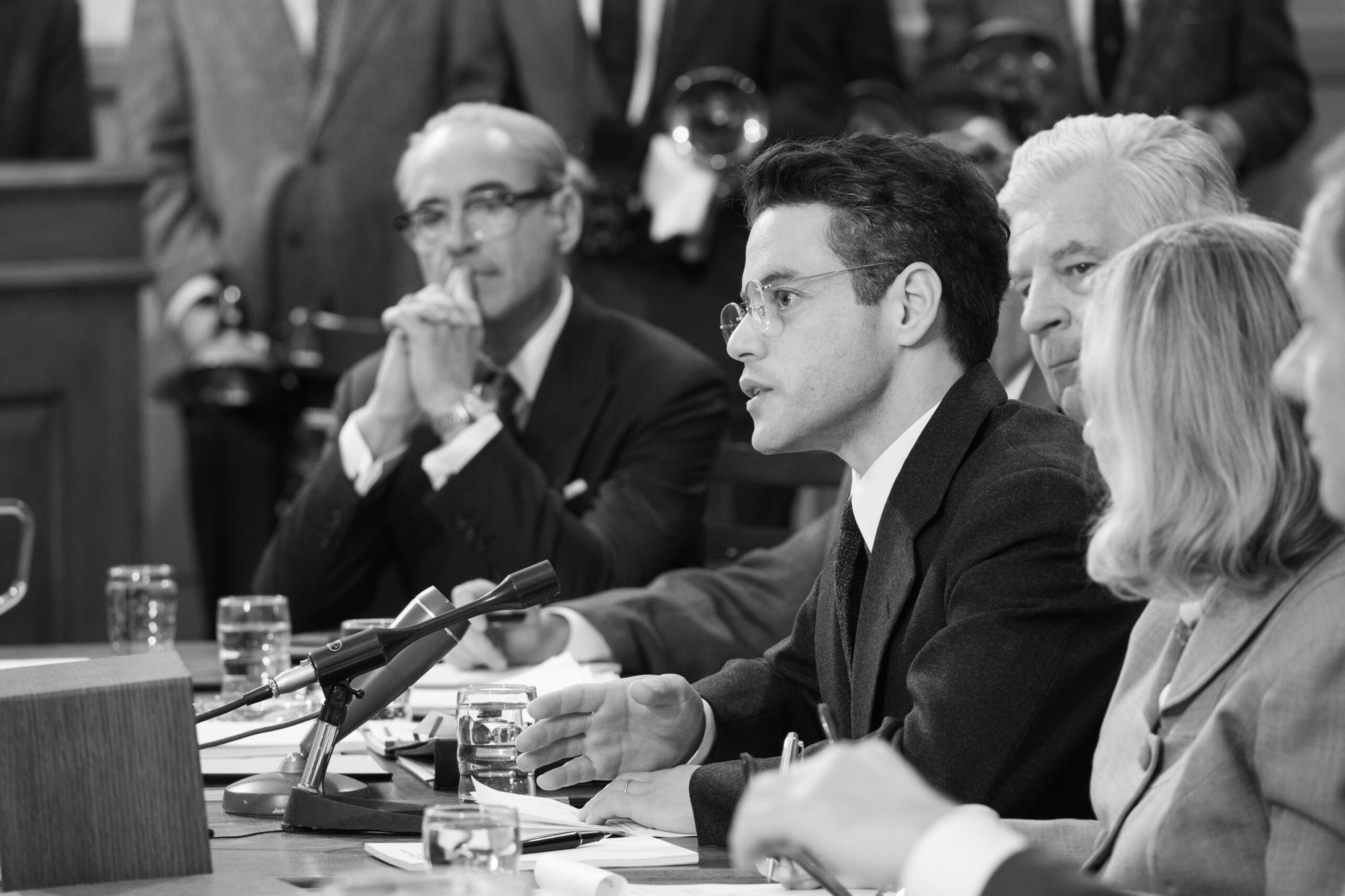
Rami Malek, an Oscar-winning actor known for his powerful performances and his uncanny ability to completely immerse himself in the characters he portrays, takes on the role of David Hill in Christopher Nolan’s Oppenheimer. Despite the limited screen time afforded to his character, Malek uses every moment to bring a sense of urgency and importance to Hill’s story. His performance is brief but impactful, leaving a lasting impression on audiences and becoming a crucial part of the narrative tapestry of the film.
David Hill is a man of conviction, a man who is deeply committed to standing up against the horrors of atomic weaponry. In a world where the atomic bomb is seen by many as a necessary evil, Hill stands out as a beacon of resistance, a symbol of the potential for humanity to choose a different path. Malek’s portrayal of Hill is intense and dedicated, conveying the character’s unwavering belief in his cause with a passion that resonates with audiences.
Malek’s ability to convey Hill’s conviction and his dedication to opposing the horrifying potential of atomic weaponry is nothing short of exceptional. Each line is delivered with an intensity that communicates the gravity of Hill’s beliefs, and every scene featuring Hill serves as a testament to the power of standing up for what one believes is right, no matter how daunting the odds might seem.
Hill’s dedication is not just a character trait but serves as a pivotal moment in the story. It’s a turning point that sheds light on the potential costs of progress and the importance of ethical considerations in scientific advancements. Hill, through his resistance and his refusal to condone the weapon’s development, becomes an understated champion in the story. He represents the voice of reason, the voice of those who understand the horrific implications of the atomic bomb, making his character an important part of the narrative.
Despite the brief screen time, Rami Malek’s David Hill leaves a significant impact on the audience. His portrayal of Hill, a man unafraid to stand up against the terrors of atomic weaponry, offers a stark contrast to the often clinical and detached approach to the weapon’s creation seen in the film. His powerful performance as Hill serves as a crucial reminder of the ethical implications of such destructive power.
6. Albert Einstein – The Thoughtful Genius
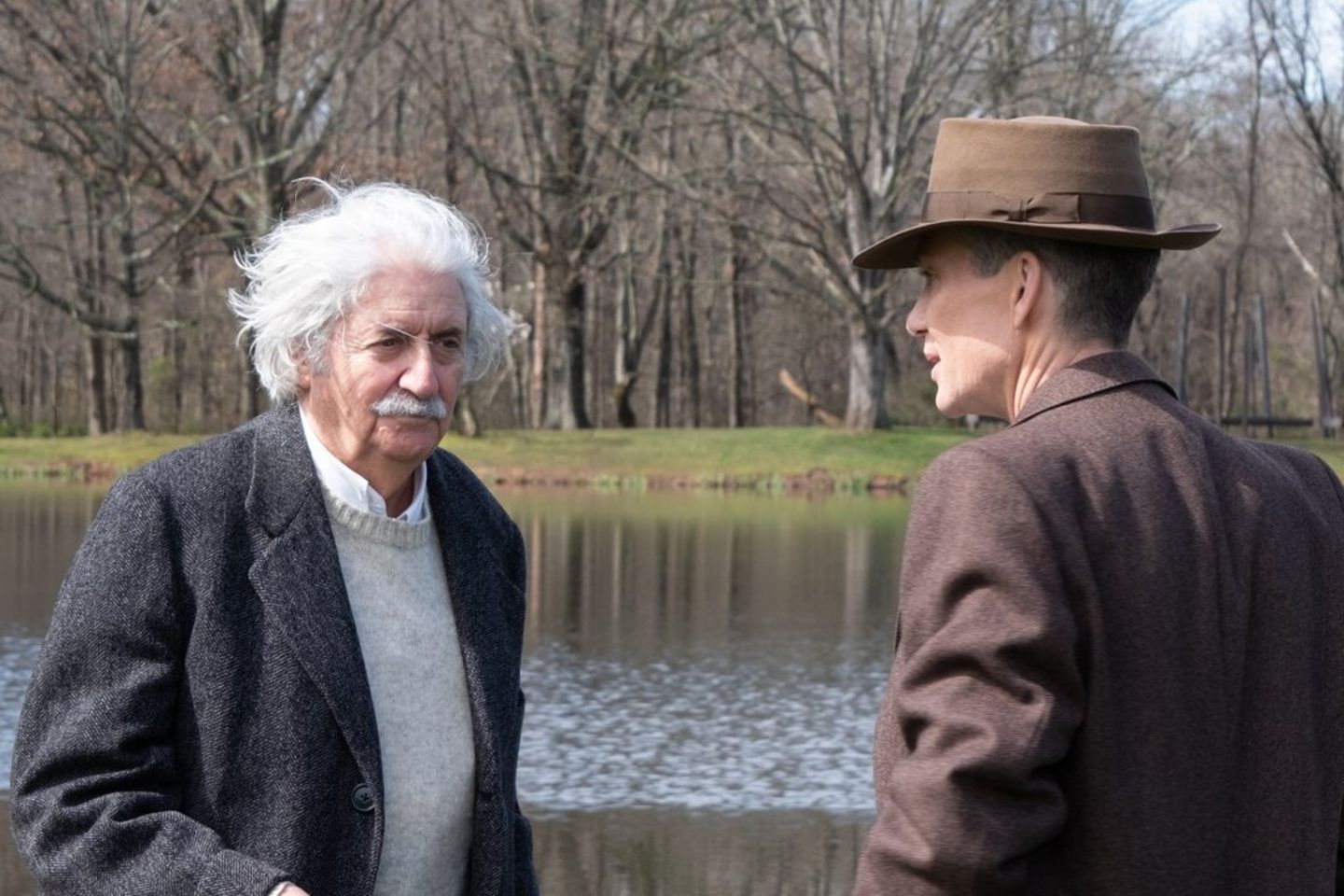
Bill Conti, a seasoned actor known for his dynamic performances, steps into the shoes of none other than Albert Einstein in Christopher Nolan’s Oppenheimer. In the complex world of atomic physics, Einstein stands as a foundational pillar, a touchstone who embodies the highest ideals and aspirations of the scientific community. Conti’s interpretation of Einstein is rich and detailed, bringing to the screen a figure who is equal parts intellectual giant and compassionate human being.
Einstein, in Conti’s capable hands, becomes more than just a historical figure. He is presented as the guiding light of the scientific world, the person whose groundbreaking theories and ideas have shaped the course of modern physics. Conti’s portrayal of Einstein is nuanced, offering glimpses into the mind of a man who has greatly influenced the world we live in today. It’s an impressive performance, one that brings the legendary figure down to earth while still capturing his immense intellectual capacity and influence.
But Conti’s Einstein is not merely an intellectual figurehead. In one of the film’s most pivotal scenes towards the end, Einstein delivers a thought-provoking monologue that serves as a distillation of the film’s central themes. His words are carefully chosen, reflecting not only the moral quandary inherent in scientific discovery but also the responsibility that comes with such knowledge. This monologue, delivered with conviction and empathy by Conti, encapsulates the film’s exploration of the ethical implications of creating a weapon of mass destruction.
Einstein’s monologue isn’t just a critique of the atomic bomb and its creators. It’s a moment that frames the entire narrative of Oppenheimer in a broader philosophical context. Through Einstein’s words, we are given a lens through which to view Oppenheimer’s personal journey and the decisions he has made. This perspective encourages audiences to consider the broader implications of Oppenheimer’s work and to question the moral boundaries of scientific advancement.
This thought-provoking monologue, along with Conti’s nuanced performance throughout the film, highlights Einstein’s role as a moral compass in the narrative. He becomes a voice of reason and reflection, a character who reminds both the other characters and the audience of the profound ethical implications that come with revolutionary scientific discovery.
5. Edward Teller – The Ambitious Physicist
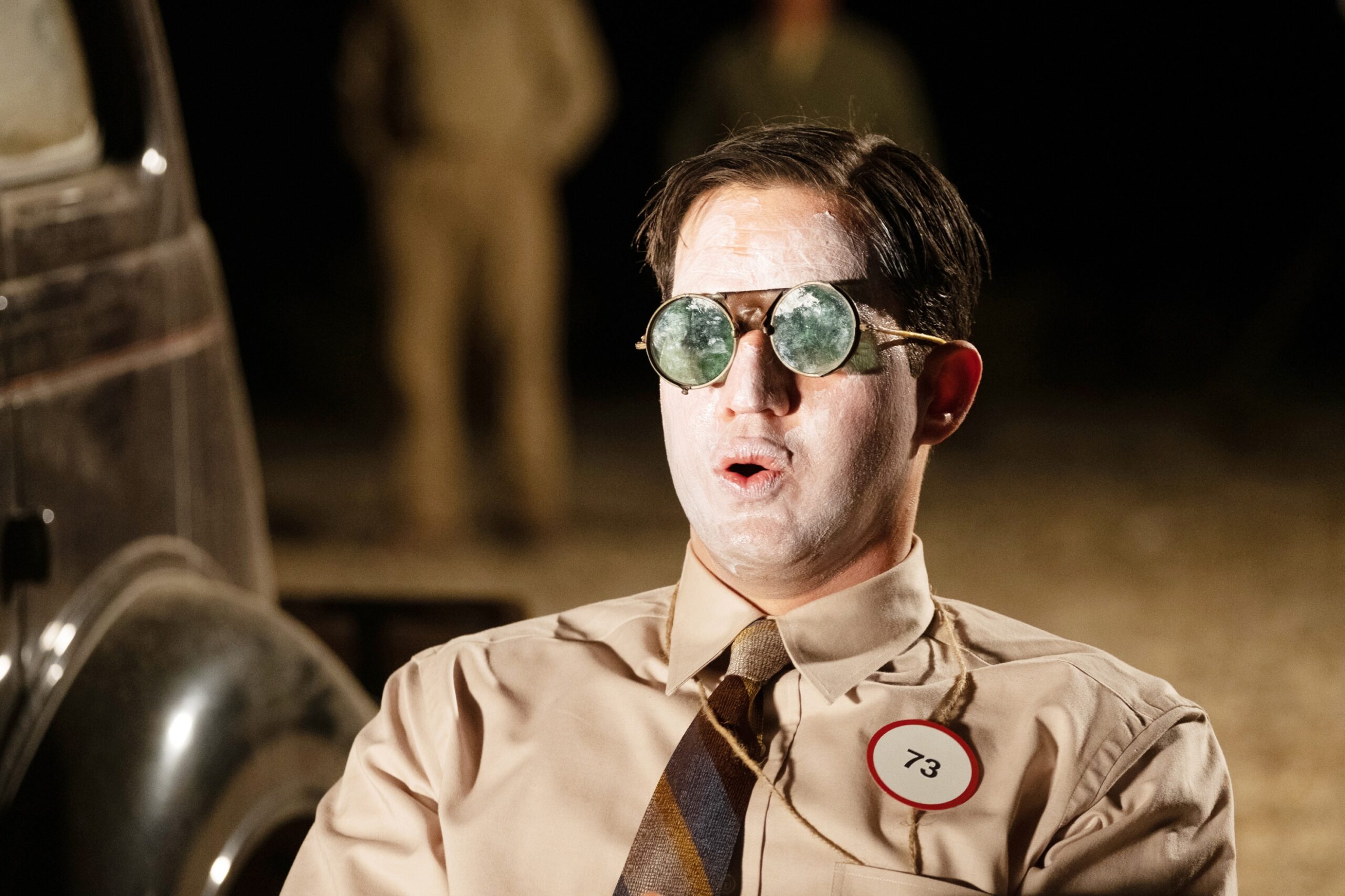
In Christopher Nolan’s historical epic, Oppenheimer, Bennie Safdie takes on the complex role of Edward Teller, a physicist known for his significant contribution to the development of the atomic bomb. Safdie, an accomplished actor and director, brilliantly captures the essence of a man driven by an insatiable hunger for knowledge and discovery. His portrayal of Teller is not just a portrayal of a scientist, but a deep exploration of the all-consuming desire for understanding and the lengths people are willing to go in the name of progress.
Teller, as portrayed by Safdie, is a man on a mission. His thirst for discovery is relentless, pushing him to go beyond the boundaries of known science and plunge into the unexplored depths of atomic physics. He is a character who is deeply committed to his work, and his ambition is as vast as the universe he seeks to understand. Safdie brings this passion and determination to life on the big screen, creating a character who is both awe-inspiring and somewhat unnerving in his relentless pursuit of knowledge.
Interestingly, Teller’s unquenchable thirst for discovery echoes a younger version of J. Robert Oppenheimer, the central character of the film. Both men are driven by a desire to push the boundaries of human knowledge, to break down barriers and uncover the secrets of the universe. This shared drive forms a common thread between the two characters, adding depth to their relationship and contributing to the film’s exploration of ambition and morality.
However, their shared thirst for knowledge also gives rise to a poignant conflict. As the film progresses, it becomes clear that the consequences of their discovery – the atomic bomb – are more horrifying than either man could have imagined. The stark realization of the power and destruction they have unleashed leads to a moral clash. The tension between Teller and Oppenheimer over the morality of their creation becomes a central theme in the narrative, adding an additional layer of complexity to their characters and their relationship.
Safdie’s portrayal of Teller creates a palpable tension that underscores the entire film. The conflict, both within Teller and between him and Oppenheimer, serves as a stark reminder of the potential consequences of unchecked ambition. It raises probing questions about the moral responsibilities that come with groundbreaking scientific discovery and the potential dangers of pursuing knowledge without considering the potential outcomes.
4. Leslie Groves – The Military Ally
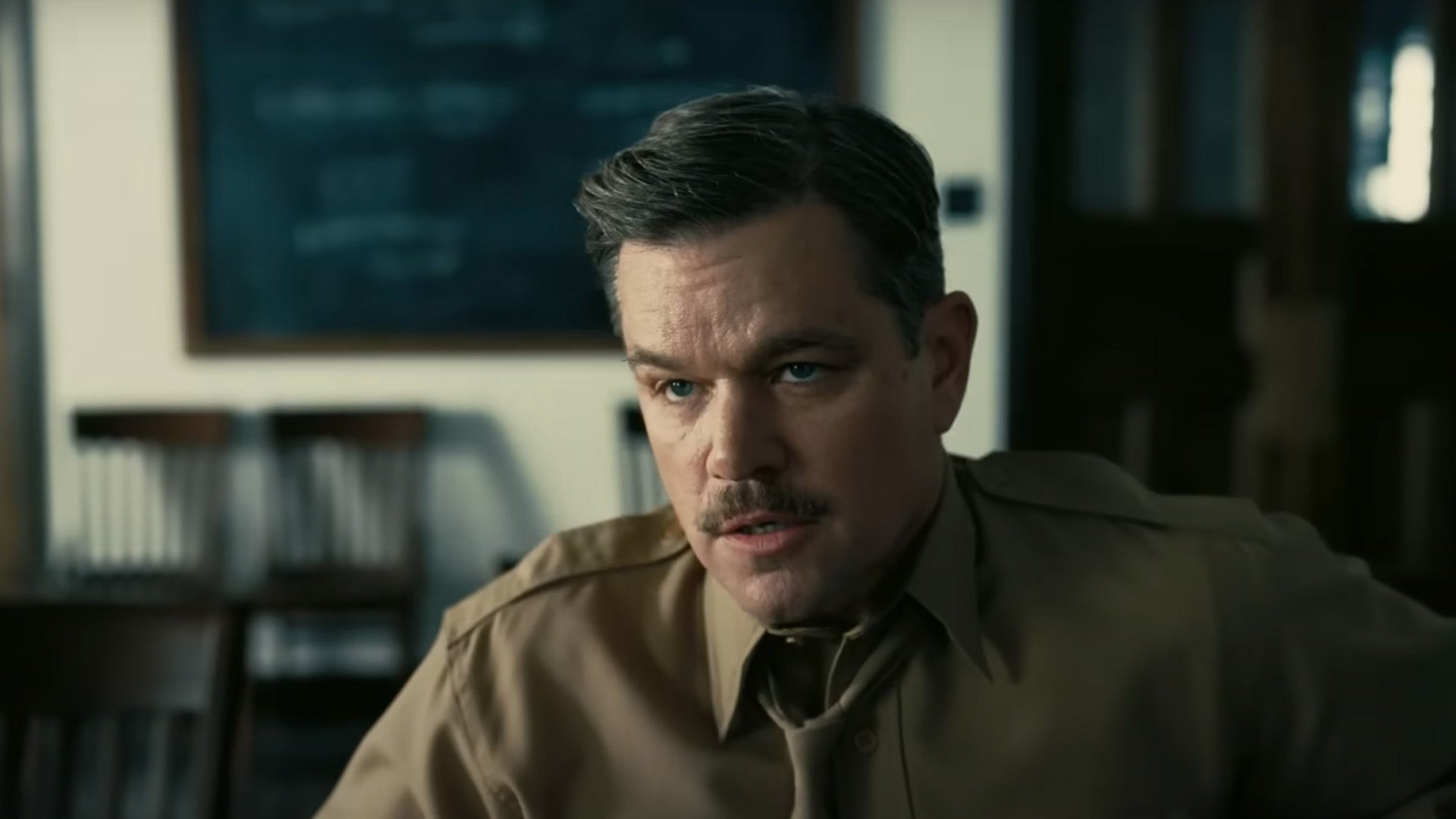
Matt Damon, the well-known and respected actor with many impressive roles under his belt, takes on the character of Lieutenant General Leslie Groves in Christopher Nolan’s Oppenheimer. Damon, renowned for his ability to immerse himself completely in a wide range of characters, embodies Groves with a seriousness and intensity that command attention. His portrayal of Groves is more than just a military figure; it’s a testament to the uneasy and complex alliance between the worlds of science and the military during times of war.
As Groves, Damon brings a military man thrown into the thick of scientific discovery to life. He’s tasked with overseeing one of the most significant scientific projects of the time – the development of the atomic bomb. Brimming with uncertainties and immense potential repercussions, this endeavor brings together the unlikely pair of the military man Groves and the scientist J. Robert Oppenheimer. Damon’s Groves, with his stern demeanor and a strong sense of duty, starkly contrasts the more introspective and idealistic Oppenheimer.
What makes this portrayal particularly interesting is the evolving relationship between Groves and Oppenheimer. Initially, their interaction is characterized by suspicion and a lack of understanding, with both men viewing the other through the lens of their own world – the military and science. However, as they grapple with the complexities of their task – creating a weapon of unprecedented destructive power – a camaraderie develops. This bond, forged in the crucible of war and the shared burden of their mission, underscores the complexities of their task and adds a layer of depth to their characters.
As the film progresses, the partnership between Damon’s Groves and Oppenheimer becomes one of the most riveting dynamics in the narrative. Despite their differences, they are united by the weight of their responsibility and the far-reaching implications of their work. The tension between the two characters, coupled with their growing understanding and respect for each other, creates a captivating storyline that keeps audiences engaged and invested in their journey.
Damon’s portrayal of Groves provides a fascinating perspective on the military’s role in scientific advancement, specifically the development of the atomic bomb. His evolving relationship with Oppenheimer adds depth and complexity to both characters and contributes to the narrative’s exploration of the moral and ethical dilemmas posed by such powerful technology. Through his character, Damon presents a compelling image of a military man grappling with the ramifications of scientific discovery and the delicate balance between power and responsibility.
3. Kitty Oppenheimer – The Fierce Protector

In Oppenheimer, Emily Blunt, the award-winning actress known for her versatile performances, delivers another stellar performance as Kitty Oppenheimer, the wife of the physicist at the center of the film’s narrative. Blunt brings her unique blend of intensity, sensitivity, and grace to the role, creating a character who is much more than just the supportive wife of a renowned scientist. Kitty, in Blunt’s hands, becomes a force of nature, a woman who fiercely loves her husband and isn’t afraid to stand up to the powerful figures that surround them.
Blunt’s Kitty is not the typical silent partner often seen in biographical dramas. She doesn’t merely stand by Oppenheimer’s side as he navigates the daunting world of atomic physics. Instead, she assumes an active role, defending her husband passionately against detractors and cynics. Her voice, imbued with Blunt’s characteristic strength and sincerity, rings loud and clear, underscoring her determination to protect her husband and their shared life.
Kitty’s passionate defense of Oppenheimer is not her only notable trait. Blunt imbues Kitty with a fiery independence, an unshakeable conviction that makes her a formidable character in her own right. Whether she’s sharing an intimate moment with her husband or challenging figures like Edward Teller, she remains steadfast, unyielding in her principles and beliefs. This resolute stance makes her a compelling and memorable part of the film’s narrative.
One of the highlights of Blunt’s performance is her portrayal of Kitty’s disdain for Edward Teller, portrayed by Bennie Safdie. The tension between Kitty and Teller adds a layer of intrigue to the film’s narrative, and Blunt’s performance amplifies this tension beautifully. She portrays Kitty’s disdain with a perfect blend of subtlety and fiery emotion, creating a palpable friction that adds to the film’s drama.
In Blunt’s hands, Kitty is not just a supportive spouse. She’s a resilient woman who doesn’t shy away from voicing her opinions, a woman who fights for her husband and stands firm in the face of adversity. This portrayal of Kitty brings a refreshing depth to her character, showcasing her as a strong, independent figure within the narrative.
2. Lewis Strauss – The Nemesis
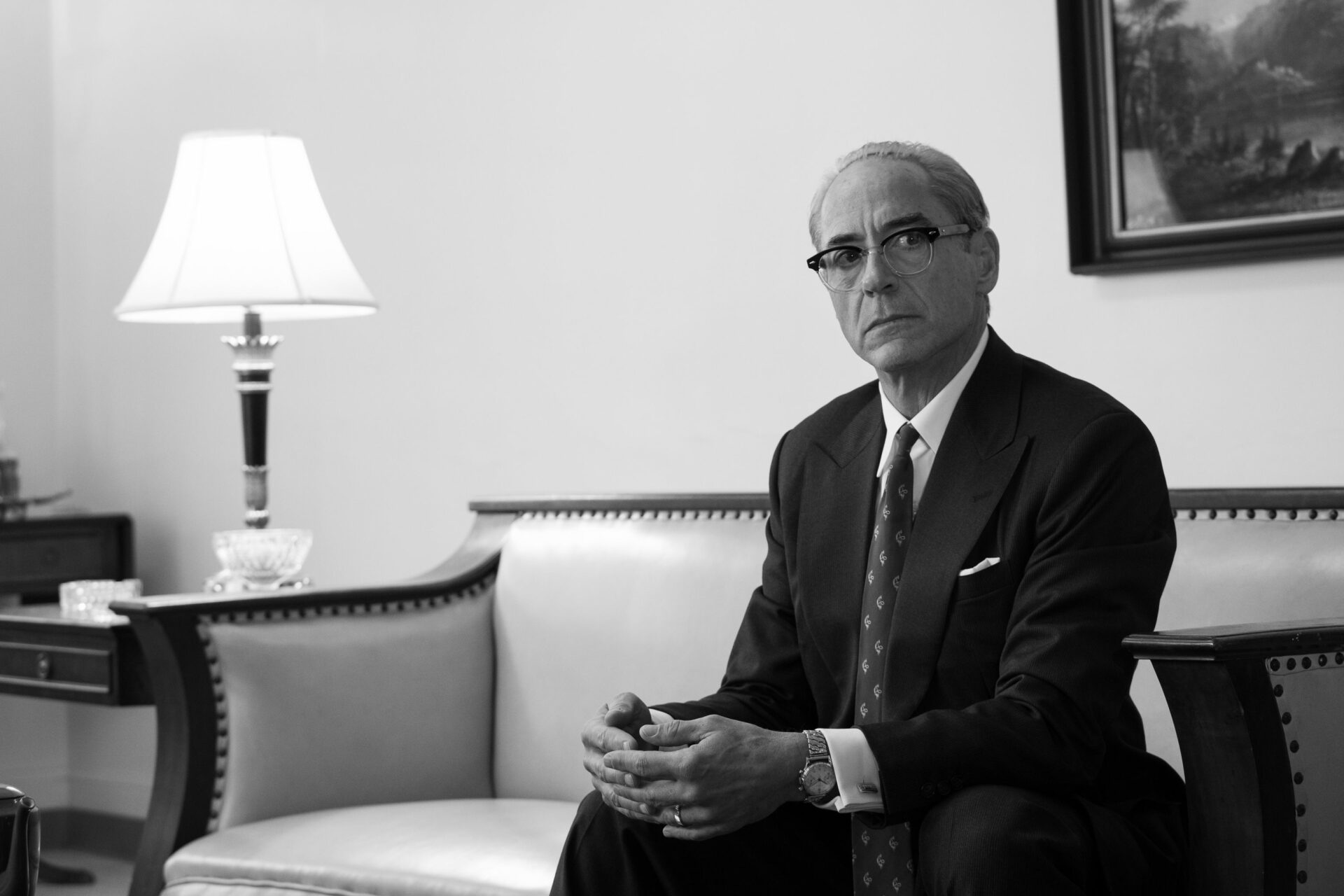
Robert Downey Jr., the much-loved actor known for his outstanding performances in various roles, takes on a brand new challenge in Christopher Nolan’s Oppenheimer. He breathes life into the character of Lewis Strauss, a key player in the world of atomic physics and a man who becomes an important antagonist in the story. With a rich history of playing characters with complex motivations and intricate personalities, Downey Jr. is the perfect choice for such a multi-layered role.
His portrayal of Strauss is full of cunning schemes, personal vendettas, and power struggles, making him a significant contributor to the film’s tension and drama.
Strauss, as played by Downey Jr., isn’t your typical antagonist. His motivation isn’t straightforward. Instead, it’s a complex web of personal and professional vendettas, each carefully planned and executed precisely. His actions are driven by a desire for power, control, and revenge, and each scheme he devises adds another layer to the film’s narrative, increasing the tension and keeping viewers on the edge of their seats.
These intricate schemes of Strauss don’t exist in isolation. They are deeply interwoven with the personal struggles of the film’s protagonist, J. Robert Oppenheimer. The intense pressure that Oppenheimer faces, both from the immense task of creating the atomic bomb and from the persistent antagonism of Strauss, shapes his character and drives the narrative. Downey Jr.’s Strauss doesn’t just add tension to the story; he is instrumental in defining Oppenheimer’s character and journey throughout the film.
What makes Downey Jr.’s portrayal of Strauss genuinely remarkable is his ability to maintain a delicate balance between cunning schemer and complex antagonist. He never allows Strauss to become a caricature of a villain. Instead, he gives him depth and complexity, making him a fully fleshed-out character essential to the story. This makes Strauss not just a compelling antagonist, but also a fascinating character study in his own right.
Downey Jr.’s performance as Strauss is not just about crafting a memorable antagonist. It’s about bringing to life a man who is driven by his own ambitions, fears, and vendettas. Through his performance, Downey Jr. shows us a side of Strauss that is both chilling and intriguing, a man who uses his power and influence not just for his own gain, but also to shape the narrative of one of the most important chapters in human history.
1. J. Robert Oppenheimer – The Tormented Genius
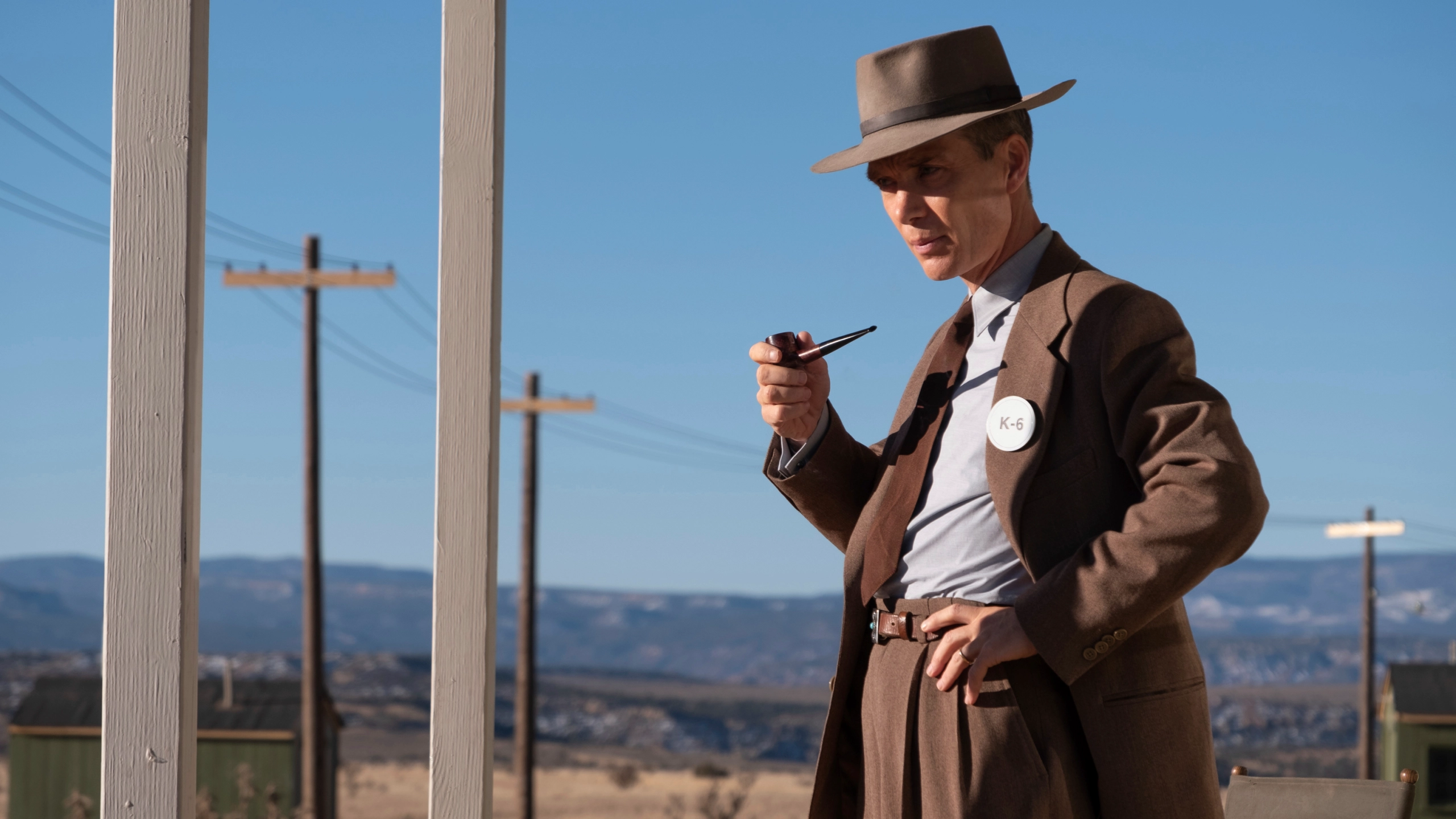
Cillian Murphy, an actor renowned for his ability to transform completely into any character he plays, takes on the role of J. Robert Oppenheimer in Christopher Nolan’s Oppenheimer. His performance is mesmerizing, capturing audiences from the moment he first appears on screen.
With a keen understanding of his character, Murphy perfectly encapsulates Oppenheimer’s journey from a confident, enthusiastic academic to a man burdened by the weight of his creations. It’s a transformation that’s both intense and profoundly moving, proving once again Murphy’s exceptional acting skills.
Murphy’s Oppenheimer starts as a man full of confidence, a brilliant academic whose knowledge and passion for physics are evident in every gesture and word. He steps into the world of atomic physics with an infectious eagerness and curiosity, bringing the audience along with him on his explorations of the universe’s hidden mysteries. But as the narrative unfolds and the implications of his work become more precise, we see a shift in his demeanor.
This shift from a vibrant scientist to a man grappling with the gravity of his creations is where Murphy truly shines. He portrays this transformation with a depth of emotion and subtlety that’s utterly compelling. His performance captures the internal struggle of a man who’s faced with the profound realization that his groundbreaking work has the potential to cause unimaginable destruction. This portrayal of Oppenheimer’s journey, filled with inner turmoil and guilt, is brilliantly executed by Murphy and remains etched in the audience’s mind long after the film ends.
Murphy’s performance is truly Oscar-worthy, filled with raw emotion, depth, and nuance. He anchors the film with his portrayal of Oppenheimer, bringing a sense of gravity and authenticity to the narrative. It’s a testament to his immense talent and his dedication to his craft. His portrayal of Oppenheimer isn’t just a highlight of the film – it sits at the heart of it, defining its emotional core.

Christopher Nolan’s Oppenheimer is more than just a historical drama; it’s a character-driven masterpiece that delves deep into the human condition. It’s a compelling narrative that combines history, morality, and human emotion into a riveting tale that keeps audiences hooked from beginning to end. Nolan, known for his distinct storytelling style, has outdone himself with this film.
With an ensemble cast that includes some of the finest actors of our time, Oppenheimer is a testament to the power of storytelling and the art of cinema. Each character, from the lead to the supporting roles, has been crafted meticulously, adding depth and complexity to the narrative. The performances of the cast, coupled with Nolan’s masterful direction, make the film a captivating experience that resonates with audiences on multiple levels.
In conclusion, Christopher Nolan’s Oppenheimer is a triumph of character-driven storytelling. With Cillian Murphy’s mesmerizing portrayal of Oppenheimer at its heart and an ensemble cast that delivers stellar performances, the film serves as a testament to the power of cinema. It tells a compelling story about a significant moment in history and explores the complexities of human morality and the consequences of our actions. It’s a film that leaves audiences with much to ponder long after the credits roll.


